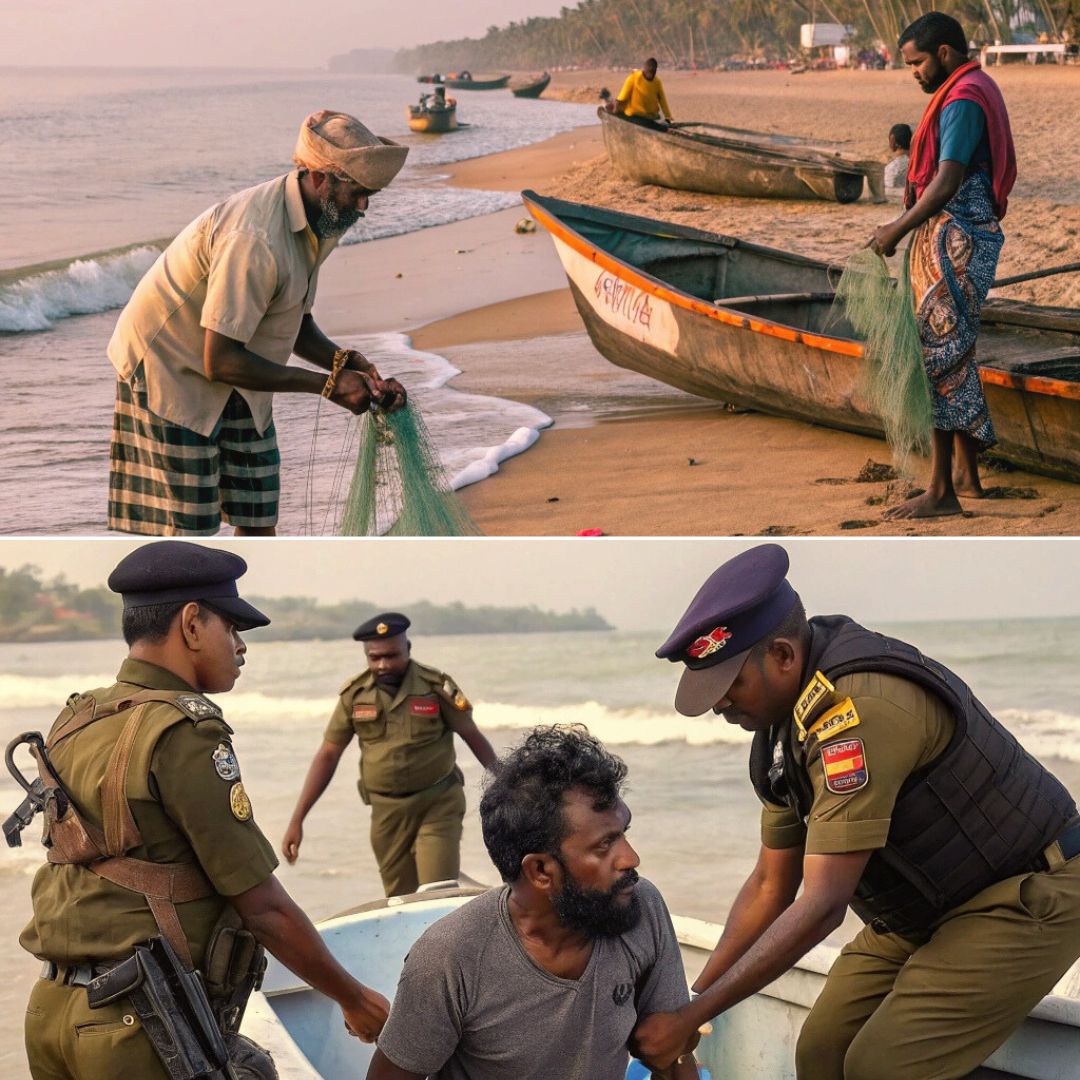On August 6, 2025, 14 Indian fishermen from Tamil Nadu’s Ramanathapuram district were arrested by the Sri Lankan Navy for allegedly crossing the International Maritime Boundary Line (IMBL). The fishermen were in two boats, 10 near the Kalpitiya sea area and 4 near the Katchatheevu islet.
Their vessels were seized, and they were taken to Sri Lankan ports (Puttalam and Kankesanthurai) for custody. Tamil Nadu’s government and fishermen’s associations have expressed deep concern, urging the Indian central government to intervene and seek a permanent resolution to these recurring arrests that threaten fishermen’s livelihoods.
Arrests and Immediate Aftermath
The fishermen, including young men from Thiruppalai such as Vimalraj (24), Mathesh (20), Sakthi (18), and Karthi (18), were fishing in traditional waters near Katchatheevu, an islet ceded to Sri Lanka under a 1974 agreement but still claimed as traditional fishing grounds by Indian fishermen.
After their arrest by the Sri Lankan Navy, the fishermen were initially questioned and then handed over to the respective fisheries departments. Their boats were impounded as per standard procedure.
This arrest adds to a troubling trend, with over 40 fishermen having been detained and their boats seized by Sri Lanka over the past six weeks alone, causing economic hardship and distress within fishing communities.
The repeated arrests not only strain diplomatic relations but also deeply affect the social fabric of fishing communities. Many fishermen face uncertainty and financial instability, which ripple through their families, underscoring the urgent need for a comprehensive and empathetic resolution to this ongoing issue.
Historical Context and Maritime Boundary Disputes
The ongoing arrests occur against the backdrop of a protracted maritime boundary dispute between India and Sri Lanka. The IMBL was established to delineate waters, but fishermen from Tamil Nadu have for generations ventured near Katchatheevu, relying on these waters for their livelihood.
The ceding of Katchatheevu to Sri Lanka in 1974 remains a sore point, with many local fishermen and Tamil Nadu politicians calling for its retrieval to restore traditional fishing rights. Despite repeated appeals by the Tamil Nadu State Assembly, including a resolution urging the central government to reclaim the islet, and letters from Chief Minister M.K. Stalin to the Prime Minister and External Affairs Minister, no permanent diplomatic solution has been reached to prevent further arrests.
The Logical Indian’s Perspective
The repeated arrest of Indian fishermen by the Sri Lankan Navy highlights the urgent need for sustained, peaceful dialogue and cooperative diplomacy between the two nations. These fishermen are integral members of communities whose livelihoods depend on cross-border fishing waters, rather than just violators of maritime law.
The Logical Indian believes that empathy, respect for traditional rights, and dialogue must underpin any resolution to avoid economic suffering and maintain peace. A sustainable solution should balance the sovereignty concerns of both countries while protecting the rights and dignity of the fishermen.
How can governments and civil societies collaboratively foster a long-lasting peace and mutual understanding in resolving such sensitive cross-border issues? What role can public awareness and community engagement play in bringing about empathetic and constructive solutions?












